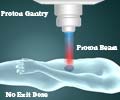- Microgravity alters cell structure and gene expression, making cancer cells more aggressive
- NASA’s research on the ISS aids in developing new cancer treatments
- Space-based studies are crucial for both astronaut health and global cancer treatment advancements
Space Station Provides a Platform for Seeking Better Cancer Treatments
Go to source).
Microgravity can accelerate cancer cell growth in space, reshaping our understanding of cancer treatment. #cancerresearch #medindia #microgravity’
The Cancer Moonshot and Space-Based Research
The White House’s Cancer Moonshot initiative aims to significantly reduce cancer death rates. As part of this effort, NASA is exploring how space environments, particularly microgravity, affect cancer cells. The unique conditions in space provide a distinct perspective on cancer biology.Microgravity and Cancer Cell Behavior
Microgravity alters several biological processes, including cell growth, gene expression, and immune function. Cancer cells in microgravity often exhibit accelerated growth due to:- Altered Cell Structure: Microgravity can disrupt the cell’s internal structure, leading to abnormal cell division.
- Gene Expression Changes: Certain genes involved in cell growth and survival may be upregulated, making cancer cells more aggressive.
- Resistance to Cell Death: Cancer cells in microgravity may become resistant to apoptosis, a process that eliminates damaged cells.
- Disrupted Signaling Pathways: Microgravity can interfere with the communication pathways that regulate cell growth and differentiation.
NASA’s Role in Cancer Research
NASA’s Human Research Program is actively involved in cancer research. They are developing strategies to protect astronauts from space radiation and identifying potential biomarkers for early cancer detection. Additionally, the ISS provides a platform for studying cancer cells in a unique environment.Key Advances in Cancer Research Using Microgravity
- Tissue Chips: Three-dimensional cultures of human cells, known as tissue chips, can be used to study cancer cell behavior in microgravity. These models provide a more realistic representation of the human body’s response to cancer.
- Protein Crystal Growth: Growing protein crystals in microgravity can aid in drug development by providing more accurate structural information.
- Endothelial Cells and Cancer Therapy: Studying endothelial cells, which supply blood to tumors, in microgravity can help develop targeted therapies.
- Robotic Technology: Space-inspired robotic technology has been adapted for use in cancer surgery on Earth.
Space-based cancer research offers unique insights into the disease. By studying cancer cells in microgravity, scientists are making progress towards developing new treatments and improving patient outcomes.
Reference:
- Space Station Provides a Platform for Seeking Better Cancer Treatments - (https://www.nasa.gov/missions/station/iss-research/space-station-provides-a-platform-for-seeking-better-cancer-treatments/)
Source-Medindia
















